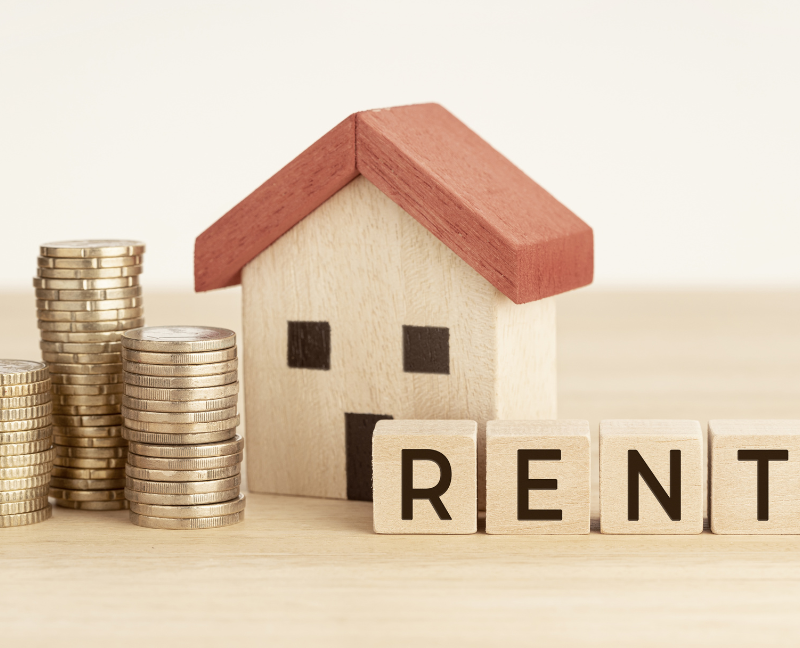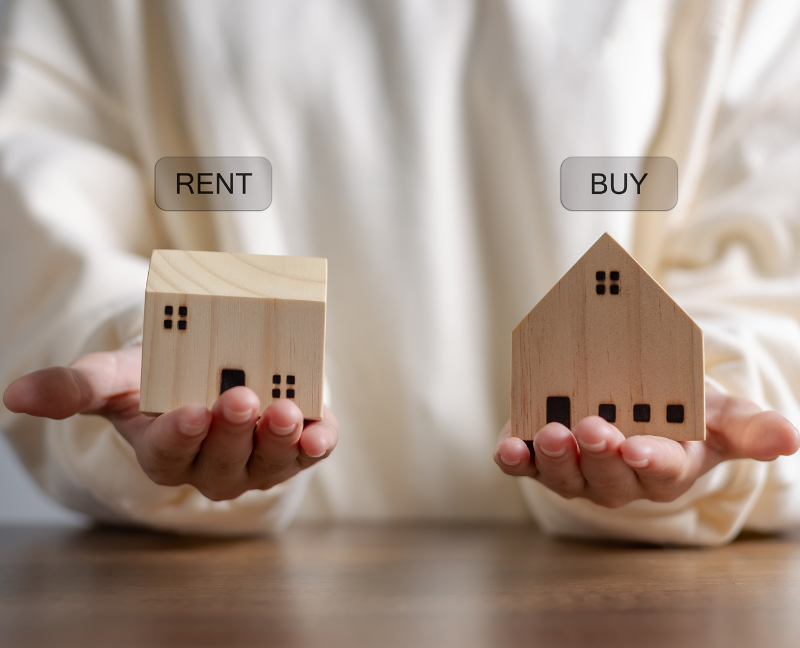Choosing whether to buy or rent a home can be a difficult decision for a lot of people. Both approaches have benefits and drawbacks.
That said, it's important to consider different factors before moving into a new home, whether it's rented or not. After all, both are big financial decisions.
To assist you in choosing the best course of action, we will weigh the benefits and drawbacks of purchasing vs renting a property in Indiana in this guide.
Buying A Home: Pros And Cons
When you purchase a home, you become the owner. This implies that you are in total control of the property and can make any changes without a landlord's consent. Remember that you will need to abide by the HOA and municipal ordinances though. If not, you can paint the walls any color you like, replace the flooring, hang pictures, and do other things that you normally couldn't do in a rental. Furthermore, you will accumulate equity in the house over time, raising your net worth. If you've owned the house long enough and have equity in it, you will be able to sell it for a profit. Let's continue our discussion regarding these benefits.
Pros Of Buying A Home
Return On Investment
The ability to earn a sizable return on your investment is one of the biggest benefits of owning a property as opposed to renting, provided you make an informed decision. Most homes increase in value over time if they are well-maintained. This is particularly valid if you purchase in a sought-after area. Because of appreciation, you may be able to sell your house for more money than you paid when you originally bought it, which would increase your bank account balance.
Stability
It is impossible to predict whether a landlord will modify the terms of the rental agreement, raise the rate, or renew the lease. On the other hand, you can live in your house for as long as you choose and you know exactly how much your monthly payment will be when you own it.
Cons Of Buying A Home
Initial Cost
The initial outlay is among the biggest drawbacks of being a property owner. The majority of lenders demand a down payment of 5% to 20%. However, bear in mind that many lending programs call for either no down payment or a much smaller down payment. Closing costs range from 2 to 5 percent of the purchase price on average. Closing costs are normally the buyer's duty, although many buyers bargain with the sellers to have some of the fees covered.
Repairs And Maintenance
The continuous expenses associated with home ownership include upkeep and repairs. For the property to appreciate, upkeep is required. A house, however, is a long-term investment that, should you want to sell, can yield a profit.
Property Taxes
Lastly, property taxes are going to be your responsibility. The price is determined by your home's size, lot size, and location. As previously said, the return on your home can easily offset the expenses.

Renting A Home: Pros And Cons
For those who lack the funds or are not ready to commit to home ownership, renting a property can be a great choice because it provides a lot of flexibility. Renting allows you to move about as much as you like, which is advantageous if you're not sure where you want to live in the long run. Let's find out the benefits and drawbacks of renting a house in more detail.
Pros Of Renting A Home
Affordable in the Short Term
Due to the absence of closing costs and a down payment, renting may appear more reasonable in the short term. Furthermore, you have no responsibility for upkeep or repairs related to the property. However, bear in mind that your rent payments will not be reimbursed to you in equity.
Little To No Maintenance
You are not in charge of any upkeep when you rent. On the other hand, you are not given the option to choose when or how the problem is resolved. This may cause you much frustration. Owning a property gives you the freedom to decide when and how to fix upkeep and repairs.
Cons Of Renting A Home
Must Follow Rules
You have to follow the rules set down by your landlord. You have to abide by the rules, no matter how strict the landlord is. You now have less influence over your life and living circumstances as a result. Many believe that their home is the only location where they can do anything they want. With a rental, this isn't the case. For instance, a lot of landlords forbid tenants from nailing décor to the walls. Remember that landlords are also accountable.
No Equity
In reality, you might as well be paying twice as much for someone else's mortgage. When you move out, there's no chance to produce a profit or receive a return on your investment.
Which One Do You Think Is Right For You?
Whether to buy or rent a house ultimately depends on your own circumstances. Buying could be the best option for you if you have the money to do so and are prepared to make a long-term commitment to one location. When the time comes to sell, you will receive a return on your investment from this long-term investment that has appreciated over time.
Need help deciding which one is right for you? Our team at RE/MAX Advanced Realty is here to help! Talk to us today so we can assist you with your concerns.

